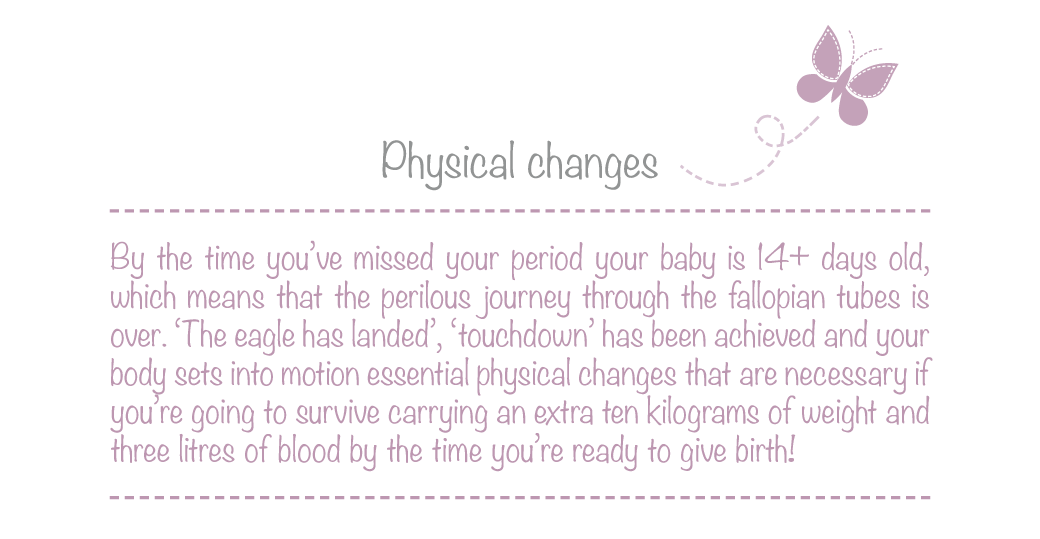The symptoms of pregnancy are caused by physical changes to the womb, breasts and bladder – with add-ons like nausea and the annoying need to rest more often.
Womb:
Progesterone (pro-gestation) is the hormone that’s made by the ‘empty capsule’ left by the egg in the ovary. It’s the ‘glue’ of the womb-lining. Progesterone is produced by the ovary until the placenta is mature enough to make its own custom-made-pregnancy oestrogen and progesterone. When you’re pregnant, your ovaries go on a long, well-deserved ‘vocation’ – their work is done until your baby stops breastfeeding. It’s why pregnant women don’t have periods.
Breasts:
Women pregnant for the second time don’t need to have a pregnancy test – breasts tell all! Pregnancy breasts are more sensitive; they’re bigger, firmer and heavier. The nipple darkens and Montgomery glands (tiny opening onto the nipple for lubrication during breastfeeding) become more noticeable.
Bladder:
The pelvis is filled with the womb, bladder and descending colon. During pregnancy, the womb becomes bulkier not only because there’s a baby growing inside, but also because the three layers of womb muscle begin to ‘uncoil’ so that they can s-t-r-e-t-c-h over the next nine months. This means that the womb takes up more space and squashes the bladder – which is why you need to pee more often.
Appetite:
Pregnant women often feel nauseous which may be caused by a ‘metallic’ taste or excessive salivating – or it can simply be Mother Nature’s way of making sure she stops eating (and drinking) rubbish. A slightly more active thyroid gland ensures that maximum goodness is absorbed from her diet, but it also increases metabolism and this leads to feeling exhausted after doing everyday tasks you used to take in your stride!
Fatigue:
The only way I can describe pregnancy fatigue is the way I remember it: I could TASTE it! Shopping for clothes one day all I wanted to do was lie on the change-room floor and sleep! When my mother-in-law came for tea I wished that she would go away so I could lie down. When I worked in the ante-natal clinic, I remember locking the door and taking a nap on the examination couch! So don’t stress about it – this extreme exhaustion will pass – listen to your body and rest when you need to.

